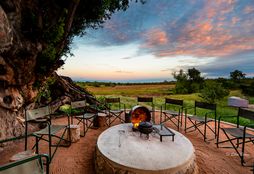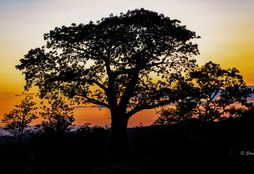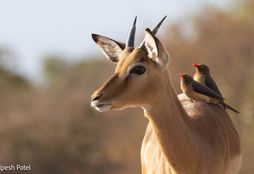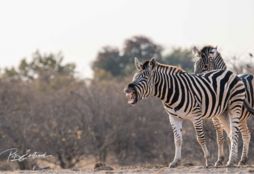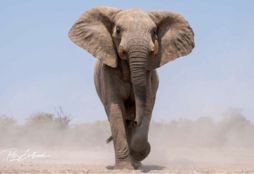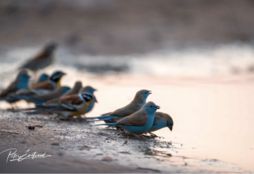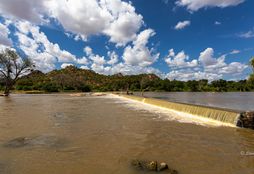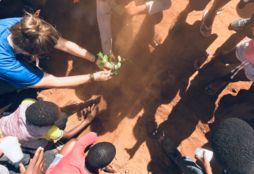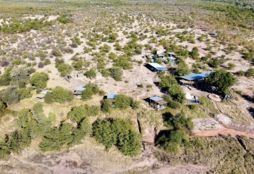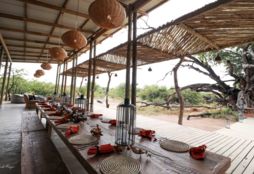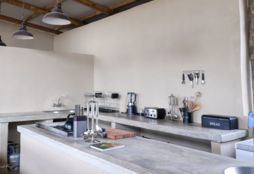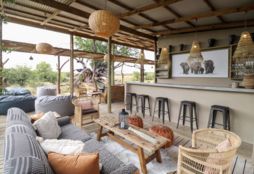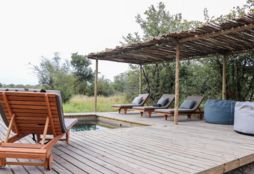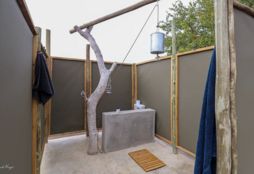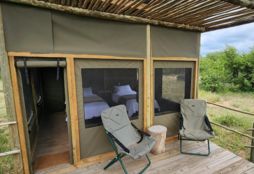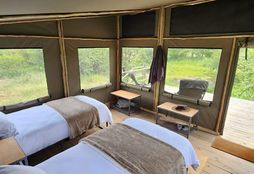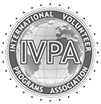Highlights
- Assist in wildlife conservation work.
- Have an authentic, once-in-a-lifetime immersive wilderness experience.
- Enjoy and experience real African wildlife in this beautiful wilderness area of southern Botswana.
- Experience remote life, gain practical experience and learn new life skills.
- Interact with children from a local school, engage in environmental learning lessons.
- Take part in a wilderness sleep-out under the stars.
- Make new friends.
Project information
The property borders the great Limpopo River at its southern end and encompasses riverine thickets, mopane veld, open plains, and boulder-strewn sandstone ecosystems.
The project itself includes over 27 000 acres of land, still only a portion of the entire wildlife area, and focuses on the tracking of animal movement and observation of their habitats. Impact forms the basis of the volunteer experience. It offers immersive nature experiences facilitated by hands-on support, adding value to the project, always with the aim of learning and contributing to meaningful conservation management in Africa.
The unique, sensitive nature of the geography makes the data collection a vital tool for learning about animal movement, behaviour, and impact on the land.
The project is interested in ensuring the protection of significant large tree species, e.g., baobabs and leadwood, and counteracting the impact that mammals and human land use may have on these. The movement and understanding of various mammals throughout the reserve and the neighbouring community is also of great interest.
During their stay, participants are given practical instruction in a number of relevant topics, including wildlife tracking, animal behaviour, bird and plant identification and astronomy.
Preferred dates
The project has preferred time slots for volunteer periods. However, this doesn’t mean you cannot come outside of these dates if none of these suit your travel plans. Please consult us for further information.
2024:
28 Sept - 26 Oct, 23 Nov - 7 Dec
2025:
25 Jan - 22 Feb, 12 - 26 April, 17 May - 1 June, 30 Aug - 13 Sept, 11 - 25 Oct , 1 - 15 Nov, 22 Nov - 20 Dec
Your role
Days ususally begin around 7:00 or 8:00 which you will spend in the field, observing or monitoring from camp or working on a specific project until 16:30.
Key tasks of volunteers:
- Daily monitoring of wildlife movement and interaction at the waterhole (in view of the camp) and from the underground hide.
- Preparing the mixture for tree protection, applying tree protection spray on rotation.
- Caring for the tree nursery, e.g., watering, planting seedlings, pruning, collecting seeds etc.
- Erosion work on roads & general areas of impact.
- Biodiversity protection measures, e.g., alien plant/tree removal.
- Updating the Earth Ranger database/monitoring system on the camp tablet.
- Snare removal and monitoring of areas on foot or in a vehicle.
A special environmental education programme further involves:
- Participating in environmental lessons at a nearby community school.
- Researching and compiling lesson plans and resources for the project.
- Interacting/teaching community children.
- Assisting with preparation and day programmes for events of the education programme.
Sustainability has been named as the global challenge of this decade, affecting us all. The project is not only committed to making a positive impact in Africa but also to global society by teaching and exposing volunteers to the broader concepts of:
- sustainable leadership
- intercultural engagement
- biodiversity conservation.
It is important to note that this description serves as an example only. The daily tasks and challenges depend on the volunteer, the time of the year, and the work that needs to be done. The final job description can therefore vary substantially from the above.
Accommodation
Volunteers will be accommodated at a rustic yet refined wilderness camp with canvas-tented twin units on wooden decks. Units are shared with someone of the same sex.
Communal outdoor bathrooms come with wood-fired hot water and a flush toilet.
The fully equipped self-catering kitchen offers extravagant amenities such as smoothie blenders! A highlight is the Lone Tree area, where a fire is made each evening.
The camp is exclusively run on solar power and lighting sources along with solar lamps at the tented units.
A pool invites one to cool off in the heat of the day and the camp overlooks a waterhole where game is plentiful: elephants, zebras, giraffes and hyenas are regular visitors, along with many other mammal species.
Laundry is done once a week, and your bed linen/towels will be changed then too. It is your responsibility to keep your accommodation neat and tidy as it won’t be serviced daily.
Meals
Meals will be prepared for you.
Special dietaries or allergies need to be communicated before your arrival. However, in case you require plant milk or gluten-free products, we suggest bringing your own, as this is not easily available in Botswana.
Washing up is mostly done by staff. However, all volunteers are expected to ensure cleanliness and assist in washing up when required.
Free time
One day a week is an off-day, a time for reflection, reading and relaxation at the camp.

